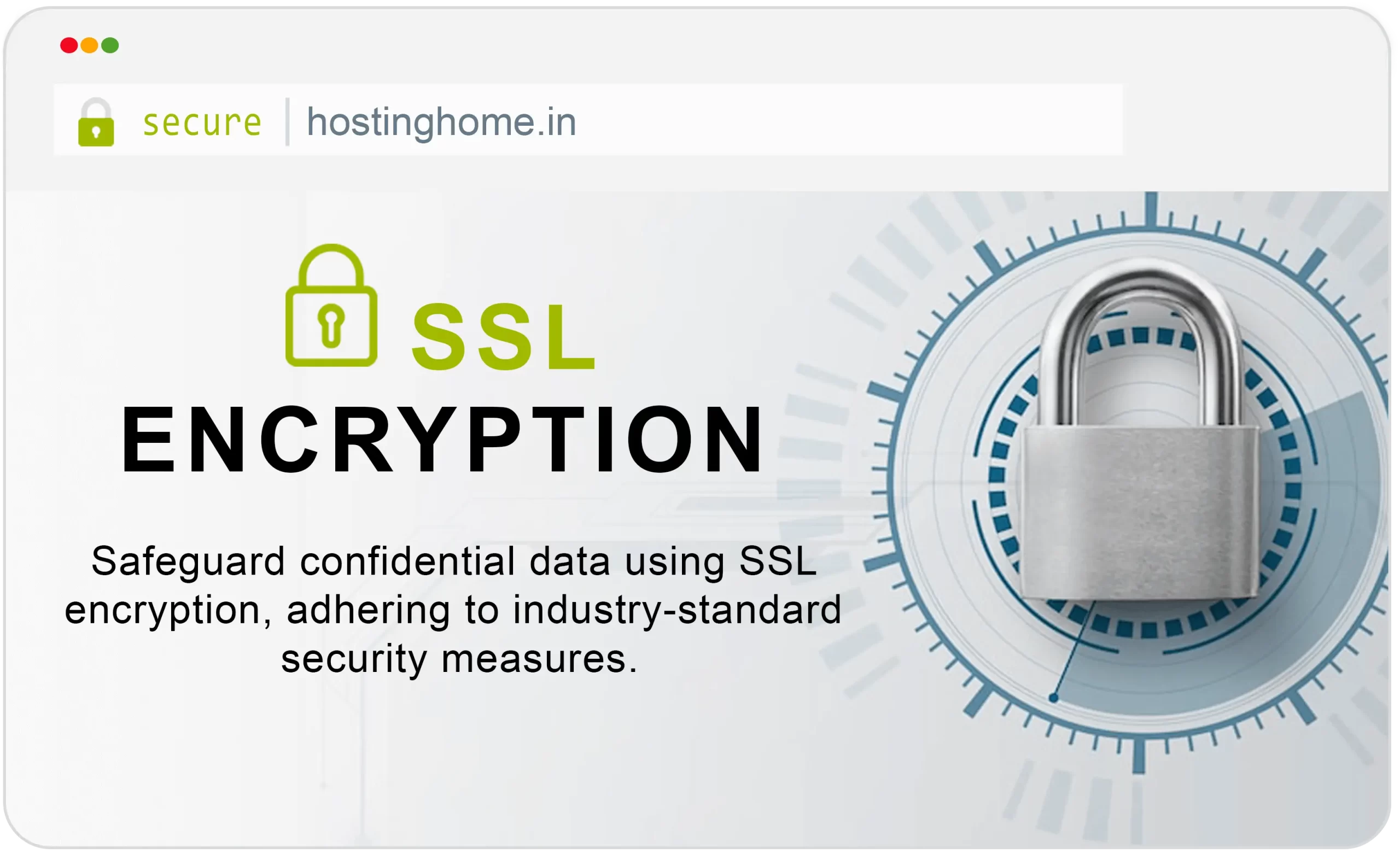SSL Certificate
Fortify your website’s security effortlessly with our swift, dependable Standard, EV, and Wildcard SSL Certificates. Obtain your SSL Certificate today. Learn more details here!

Comodo SSL Certificates
Elevate your website with enhanced Security, instill Trust, and establish Credibility.
Positive SSL
₹1499 /yr
Domain Validation
Single Domain
Free Reissuance
Issued within 2 Days
$10,000 Warranty
SHA2 & ECC 128/256 bit Encryption
Comodo SSL
₹3799 /yr
Domain Validation
Single Domain
Free Reissuance
Issued within 2 Days
$250,000 Warranty
SHA2 & ECC 128/256 bit Encryption
Positive SSL Wildcard
Domain Validation
Unlimited Sub-domain
Free Reissuance
Issued within 2 Days
$10,000 Warranty
SHA2 & ECC 128/256 bit Encryption
Why SSL Certificates?

Trust and Credibility
Having an SSL certificate signifies that your website is trustworthy. The padlock icon and “https://” in the URL reassure visitors that their interactions with your site are encrypted and protected.

Security
SSL (Secure Socket Layer) certificates encrypt data transmitted between a user’s browser and your website, ensuring that sensitive information like login credentials and payment details remain secure.

Search Engine Ranking
Search engines, like Google, consider SSL encryption as a ranking factor. Websites with SSL certificates are more likely to rank higher in search results, potentially increasing visibility and traffic.

Protection Against Phishing
SSL certificates help protect your users from phishing attacks by verifying the authenticity of your website. This reduces the risk of users unknowingly sharing sensitive information with fraudulent sites.

PCI Compliance
If your website processes online payments, having an SSL certificate is often a requirement for Payment Card Industry Data Security Standard (PCI DSS) compliance. This ensures the secure handling of credit card information.

Data Integrity
SSL certificates not only encrypt data but also ensure its integrity during transmission. This prevents data from being tampered with or altered by malicious entities. SSL handling sensitive personal information.
How Users See Your Site With & Without SSL

WITHOUT SSL
- No Secure Connection Indicator
- HTTP in the URL
- Potential Browser Warnings
- Reduced Trust
- Search Engine Disadvantages

WITH SSL
- Secure Connection Assurance
- HTTPS in the URL
- Browser Compatibility
- Trustworthy Brand Image
- Enhanced Search Rankings
SSL Security Certificate Features

Strongest Encryption
Robust SHA2 & ECC Encryption with Military-Grade Strength, 128/256 bit

Extended Validation
Websites with EV certificates often display the organization’s name in the address bar

Padlock Icon and HTTPS
Websites display a padlock icon in the browser’s address bar indicating a secure connection

Phishing Protection
SSL is included to protect against malware and phishing attacks, adding an extra layer of security.

Browser Compatibility
HostingHome ensures a secure browser user experience across different platforms.

Strong Key Lengths
Robust key lengths for encryption, enhancing the security of the communication channel.

Wildcard SSL Support
Our Wildcard SSL certificates support multiple subdomains with a single certificate.

Renewal and Reissue
SSL certificate providers offer options for renewal and reissuing to ensure continuous protection.
GET FREE Let’s Encrypt SSL with the purchase of any plans or
Migrate to HostingHome and get Free Let’s Encrypt SSL
Choose Plans Below
Web Hosting
Start from ₹ 55.00/mo
VPS Hosting
Start from ₹ 499.00/mo
Dedicated Server
Start from ₹ 1399.00/mo
Cloud Server
Start from ₹ 1299.00/mo
Frequently Asked Questions
What is an SSL certificate?
An SSL (Secure Socket Layer) certificate is a digital certificate that encrypts the communication between a user’s web browser and the server. It ensures that sensitive data, such as login credentials and financial information, is transmitted securely.
Why is an SSL certificate important?
SSL certificates are crucial for securing data transmitted between a user’s browser and a website. They provide encryption, authentication, and build trust, making it safe for users to share sensitive information.
How do I know if a website has an SSL certificate?
Look for “https://” in the URL and a padlock icon in the browser’s address bar. These indicate that the website has an SSL certificate and that the connection is secure.
What is the difference between HTTP and HTTPS?
HTTP (Hypertext Transfer Protocol) is unsecured, while HTTPS (Hypertext Transfer Protocol Secure) is secured with an SSL certificate. HTTPS encrypts the data exchanged between the user and the website, adding a layer of security.
What types of SSL certificates are available?
There are various types, including Domain Validated (DV), Organization Validated (OV), and Extended Validation (EV) certificates. Wildcard and Multi-Domain certificates are also available, providing different levels of validation and flexibility.
How does SSL impact SEO?
Google considers HTTPS as a ranking factor, meaning websites with SSL certificates may rank higher in search results. SSL contributes to a safer online environment, aligning with Google’s commitment to user security.
